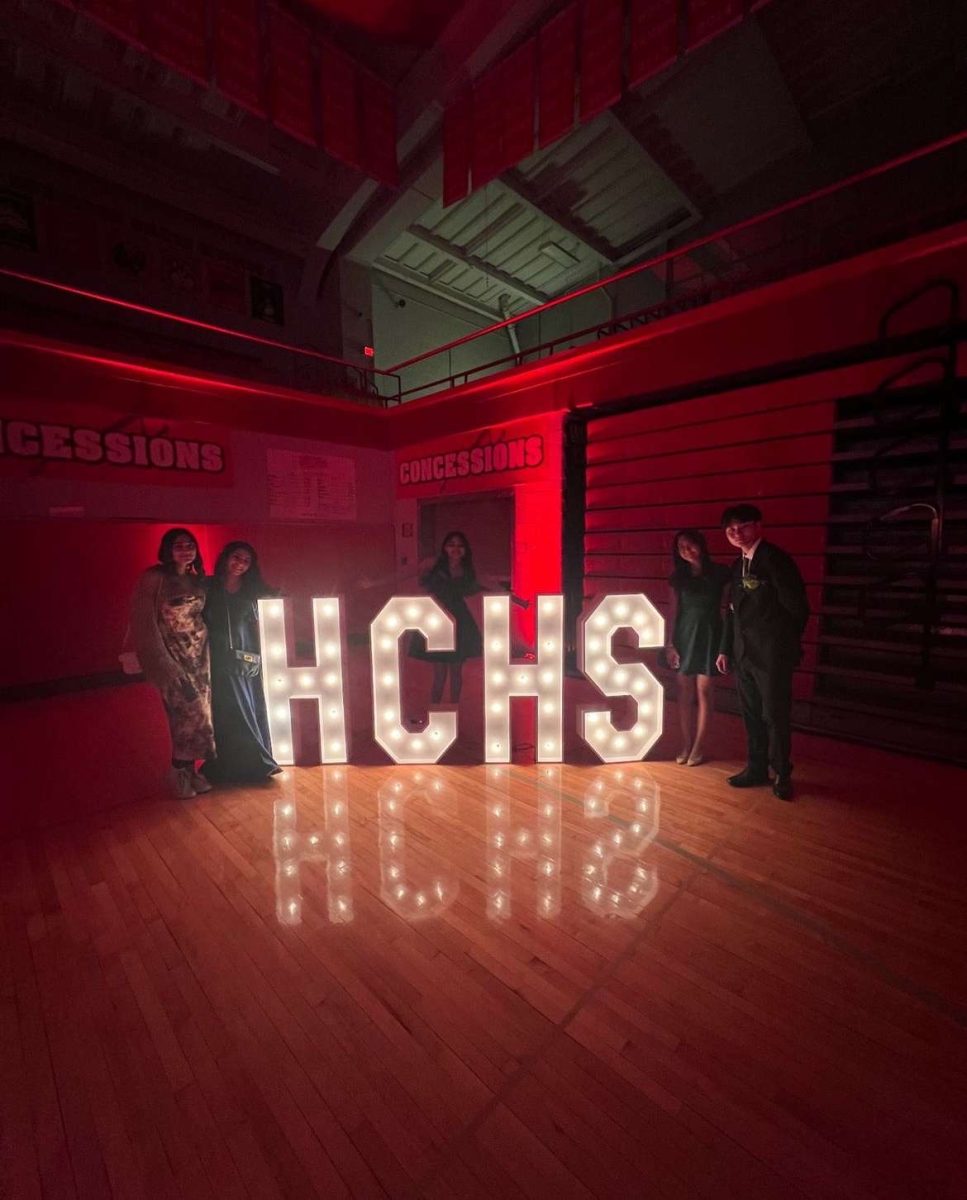After typing in her password into the provided space in the blue panel, Violet Karcergis, sophomore, clicks enter and waits for the web page to load with the emails she received that day. She tries to make this a daily habit so that she won’t miss out on any important information her teachers might send to their classes. However, today there is only one bolded message present for her, and its subject is “Daily Announcements.” With hardly a thought, she taps the delete button, closes the window, and continues on with the rest of her afternoon.
Although some teachers utilize the Microsoft Outlook Email application to communicate important information and the administration sends important school updates and announcements via email, many students do not really bother checking their email. These school email accounts are given to each student at the beginning of their freshman year along with the recommendation that they check the account regularly and use it to communicate about anything school-related.
The email system at Central has been around for a while, but there is a present controversy about the extent to which the system should be relied on and about how efficient it really is.
The use of the school email system varies from student to student. Karcergis said, “I check my email at least once a day.” On the other hand, junior Ken Devane said, “I check my email at most two or three times a week.”
However, many students at Central use it even less. Myles Laffey, library staff member, said, “We’re told as staff that about only one half of the student population uses their school email accounts.”
However, Karcergis thinks there are better ways to communicate than a school email account. “I think personal email [accounts] are better. I use mine much more,” Kacergis said.
She thinks that this way, students would definitely receive the information that the school is trying to communicate to them without having to check a separate email account. Devane thinks that having the school email is a good idea. “It’s nice to be able to look people up and email them, especially for projects. They are a good way of organizing and sending information – I just need to check mine more,” Devane said.
Mr. William Walsh, assistant principal of operations, feels that students ought to use their school email accounts because he feels it is important to keep private life separate from academic or work life.
“The 2,800 students and the 400 teachers of Hinsdale Central all have a business relationship with each other. This email account acts as a delineation between what is personal and what is not,” Walsh said.
Because this is a school account, the school has the rights and the ability to see any emails that are sent through the system. Though this might make students feel uncomfortable, Walsh doesn’t believe that students should be worried about the administration reading the emails they send.
“There are over 6,000 people in this email server, and I do not have the intent nor the time to read emails,” Walsh said. That isn’t to say that administration never uses this feature. Walsh said, “As Dean of students, I have to deal with situations where kids make poor choices.”
Tracking emails can be used in cases of bullying or other occasions in which the system was abused. Walsh explained that in the past there used to be a feature in which students had the option of emailing an entire class or the entire school, so students could send out announcements to the school. “Unfortunately, kids abused the emails and started to use it for reasons against the intended purpose, so we had to take it away,” Walsh said.
However, Walsh also believes that the administration’s access has benefits for the students in the classroom. “If you are emailing a teacher from a personal email account, there’s no way to guarantee that it will go through the filters at the school. But if you send it with the school account, you can come to me and I can look back at the sending history and find evidence to prove that you actually sent an email,” Walsh said.
While students may or may not make use of their school email account, the staff certainly does, especially Principal Michael McGrory. Everyone in the building receives his informative Red Devil Updates every week, but. McGrory certainly utilizes his email for more than just that. “I get about 150 emails a day. I even took a course on how to manage my email account,” McGrory said.
Starting this year, Barbara Williams emails every student the daily announcements every day, and she too handles much more in her email account. “I check about 10-15 times a day, and I get around twenty emails each day,” Williams said.
Laffey sends out a lot of promotion and informational emails to students about library events. “We use emails in combination with school announcements because we know a lot of students don’t check their emails. When it comes to library closings, kids usually spread the word around,” Laffey said.
Since the email system was also intended to facilitate students’ communication with anyone from school, administrators are concerned about the efficiency of the whole system. “I think the school email system is somewhat effective, but there are a lot of things we could do differently to promote student use of it,” said McGrory.
Kacergis thinks that emails are effective in regards to student and teacher communication, but only if the emails are checked. “I think teachers definitely should check their email outside of school, especially if it’s right before a big test or project,” Kacergis said.
Currently, many students do not feel the need to check their account because they do not think that there’s anything important enough to really check. Devane said, “I honestly don’t read all the emails that I get. I mean, what’s important gets around anyway.”
Among the staff there is a mixed response to the school email system and communication with students through it. Mrs. Kathy Gabric, Honors Biology teacher, makes good use of it. After every test, she sends out an email to the parents of every child that received an A on the exam. “Usually parents only get contacted with bad news, but I think it’s nice to let them know when their child does well, too,” Gabric said.
She also sends out emails to parents first semester. “These emails help them understand and help with their child’s adjustment to this class. I also see them as a gift to honors students.”
Overall, Gabric is satisfied with the email system. “Even though it takes time away from face-to-face communication, I think it’s efficient. It also comes with its little perks. For example, it has helped me keep in touch with past students. Students usually don’t call their former teachers, but they are much more likely to email them,” Gabric said.
Mr. Michael Dimatteo, World Cultures and A.P. Euro teacher, does not use his email to communicate with students as much. He tells students that if they need to talk to him, they should see him in the morning, rather than sending an email.
“I don’t respond to emails unless they are emergencies. If a student’s computer explodes or something earth-shattering happens, then I’m fine if they email me and let me know what the problem is. But what I don’t like are the emails from students asking about the pages for homework or other things they can handle themselves,” Dimatteo said.
Whatever the reasons for checking or not checking school email accounts, administrators think that there might be better ways to communicate with students. Walsh said, “There is a growing argument that emails are on their way to becoming obsolete because there are more available ways of communication that are more immediate.” McGrory agrees that emailing is becoming outdated. “I think we have to realize that email is just not the primary method of communication for students these days,”
Another system the school is looking at is a texting system. “I know colleges sometimes use this system for important events going on at the college,” McGrory said.
Walsh believes that impersonal communication, though effective, can never be completely perfect. “There are always the senders who abuse the system and send out too much, and there are always the receivers who don’t read. What it all comes down to is relevance. People only care about information if it’s relevant to them,” Walsh said.
“Any way of spreading information will only be effective if students make the effort to check,” Dimatteo said. “Teachers can put the effort into making a website or sending an email, but it will only benefit those who check. In situations like this, it’s a Catch 22. It’s impossible that everyone wins.”









